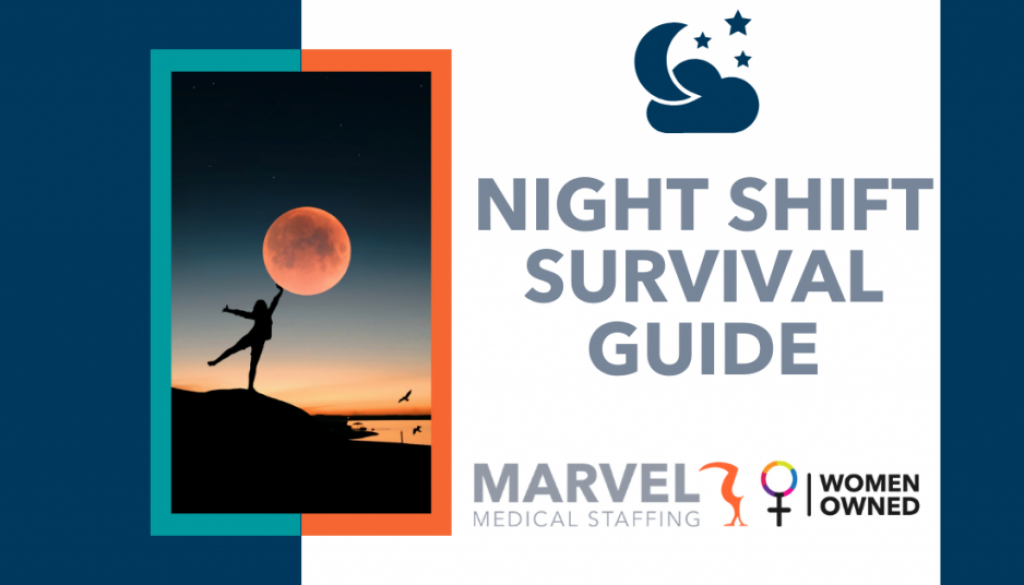Night Shift Survival Guide
Helping you survive your NOCs, one shift at a time.
The ‘Graveyard Shift’ may not sound too enticing to most, however working as a night shift nurse often offers many benefits. Regardless of whether you’re working nights for the pay incentives, for a less hectic shift, or simply to get more hours, there are a few things that you will want to consider before you sign up for your first graveyard shift. We’ve put together a few quick tips for all of you soon-to-be night owls.
Sleep, Sleep, Sleep:
Regardless of whether you work days or nights, your responsibilities often remain the same. Therefore, it is crucial to get adequate rest during your time off in order to keep your mind sharp. Although it may prove challenging at first to go to bed as the world is just now waking up – finding a quiet, dark, secluded area is key to receiving the quality sleep that your body requires.
If possible, try sleeping in the same environment every time you do sleep, so your body can adapt to a new pattern and identify when it is time to rest!
Eat Healthy, Stay Hydrated:
The foods you eat prior to your shift can play a huge role on your performance. It\’s important to consume foods that provide you with energy and keep you full while you are on your feet. Packing snacks like granola bars, nuts, fruits, and vegetables are just a few examples of snacks that keep you up and going!
Some facilities only offer a 30 minute break for a 12 hours shift, so it’s important to keep your tummy full so your mind can focus on your duties.
Group your Shifts:
Giving your body and mind adequate time to heal is important to providing quality care and preventing burnout. In order to keep your body on schedule, try grouping your night shifts together so you can have a few consecutive days off in order to recoup. However, working these consecutive night shifts can take a toll on your body if you aren\’t used to it.
It often takes awhile to find your personal rhythm, so don’t be afraid to try switching it up!
Caffeine:
While caffeine can definitely help you make it through your shift, the fatigue that follows can be even worse! Monitor you caffeine intake and make sure you don\’t overdo it! Too much caffeine can make it hard to fall asleep after your shift, making it tougher to adapt to your new schedule.
Exercise:
Exercise is not only beneficial for your body, but equally as healthy for your mind! Studies have shown that getting at least 30 minutes of exercise a day, four times a week, leads to a healthier sleep schedule, improves your mood, and can help increase your concentration by increasing your heart rate and stimulating your brain.
Whether your exercise consists of lifting weights, running, or simply going on a walk, it is recommended to get up and moving a few times a week to increase the overall quality of your life, and job performance.



